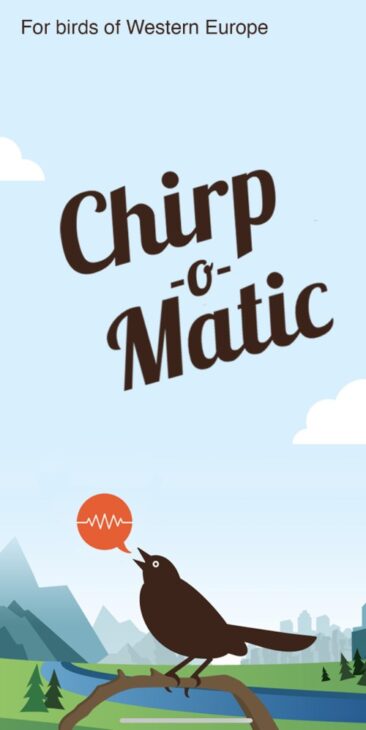Written by Lisa Chilton, NBN Trust CEO
These days, I can often be found hovering expectantly beside a tree, hedgerow or reedbed, repeatedly stabbing at a big red button on my phone screen. The cause? A mild addiction to ChirpoMatic (“other apps are available”*), which helps you to record and identify bird calls.
I’ve never been hot on birdsong. I can manage the yellowhammer’s “little bit of bread and no cheese” and the peewit’s “peewit”, but most of our avian arias remain a mystery to me. Indeed, one of my recurring stress-dreams is a flashback to a job interview many years ago, at which I was marched round a nature reserve by a ten-strong selection panel and invited to identify every other species we came across. I was ill-prepared, and I knew it. After performing dismally with a selection of plants and invertebrates in the car park, my heart sank as we entered the woods to a chorus of birdsong. It was mortifying. A memorable low-point, and the moment that still haunts my dreams, was a wearily sardonic comment from one of the panel. “It was a Chiffchaff, Lisa. It went ‘chiff-chaff’, you see? ‘Chiff-chaff….chiff-chaff’. Such an easy one, there’s no excuse, is there?”.
But that’s the thing. Once you know a bird call, once you’ve heard and memorised the Common Chiffchaff’s “chiff-chaff” or the Common Wood-Pigeon’s insistent “I don’t want to go, I don’t want to go”, you can’t unhear it. It becomes unmissable, and you can even pick out multiple species singing at once. But to the untrained ear, a stroll in the woods on a sunny day is like eavesdropping on the coffee break at a United Nations summit – so many different languages, each one of them unfamiliar and impenetrable.
My 2022 journey into wildlife recording has given me fresh impetus to improve my language skills. With a little help from my phone, I’ve not only begun to identify more birds from their calls, but also to use that information to create new records of the wildlife around me. I’ve been uploading the calls I’ve recorded on iNaturalistUK. It’s very satisfying to see them all in once place, and to listen to them again to refresh my memory. Most satisfying of all, though, is the knowledge that I’m contributing to nature conservation, providing data that will help society make better decisions for wildlife. Well, that and the waking realisation that my Chiffchaff trauma is just a distant memory.
*e.g. Merlin, Smart Bird ID

